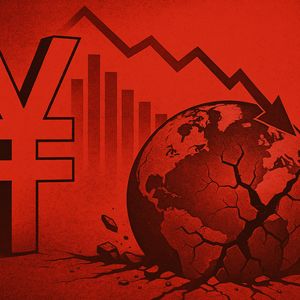A major financial change is starting quietly in Japan, and it could affect the entire global economy. Life insurance companies in Japan—known for holding long-term government bonds—are now selling off these assets. They’re not doing it to make profits or to react to short-term market trends. They’re doing it because they have no choice. These insurers have long been seen as reliable holders of government debt , often ignoring price swings because they invest for the long haul. But rising interest rates and changing financial conditions have made that strategy too risky. They are now being forced to sell, not out of strategy, but out of necessity. Understanding the Duration Gap Problem This crisis starts with something called the “duration gap.” Simply put, this is the mismatch between how long insurers expect to hold assets like bonds and how quickly they may need to pay out liabilities. Japanese insurers typically hold long-term bonds—some lasting 10 to 30 years—but now, rising interest rates are making these holdings too dangerous. The value of long-term bonds drops sharply when interest rates rise, leaving insurers exposed to sudden losses. They’re being margin-wrecked —meaning their losses are so big they’re being forced to sell to protect their capital. Why Japan’s Bond Market Matters to the World This is not just a Japan issue. Japan is a major player in global finance , holding large amounts of U.S. and European government debt. Its institutions also play a big role in currency markets, especially in how they use Japanese yen (JPY) to invest in other countries. When they start pulling back, the effects are global: Yields (interest rates) on Japanese government bonds (JGBs) rise The Bank of Japan may have to act, or risk losing control The yen weakens, while the U.S. dollar strengthens Risky assets worldwide start to drop in value as money moves to safety The Last Safety Net Is Breaking For years, the world believed that government bonds were “safe” assets—things that never lose value and always have a buyer. That belief is now under pressure. Japanese life insurers were the last big investors who didn’t care about short-term losses , and now they do. Their sudden exit is a sign that even the most trusted part of the financial system is no longer stable. This is causing reactions like: Bigger price swings in U.S. government bonds More investment in gold and Bitcoin Less money flowing into riskier emerging markets Bitcoin’s Moment in the Spotlight When trusted financial systems start to show cracks, people look for alternatives. Assets like Bitcoin and gold—things that don’t rely on governments or interest rates—become attractive . Not because the world is ending, but because the idea of “safe” government bonds is being questioned. This is one of those rare moments when the financial world wakes up and realizes: what we believed to be stable may not be so after all.















